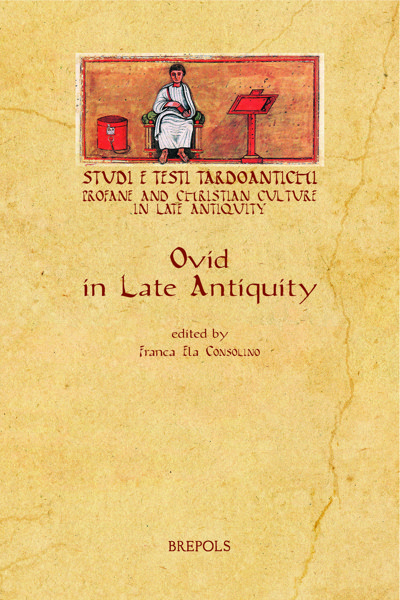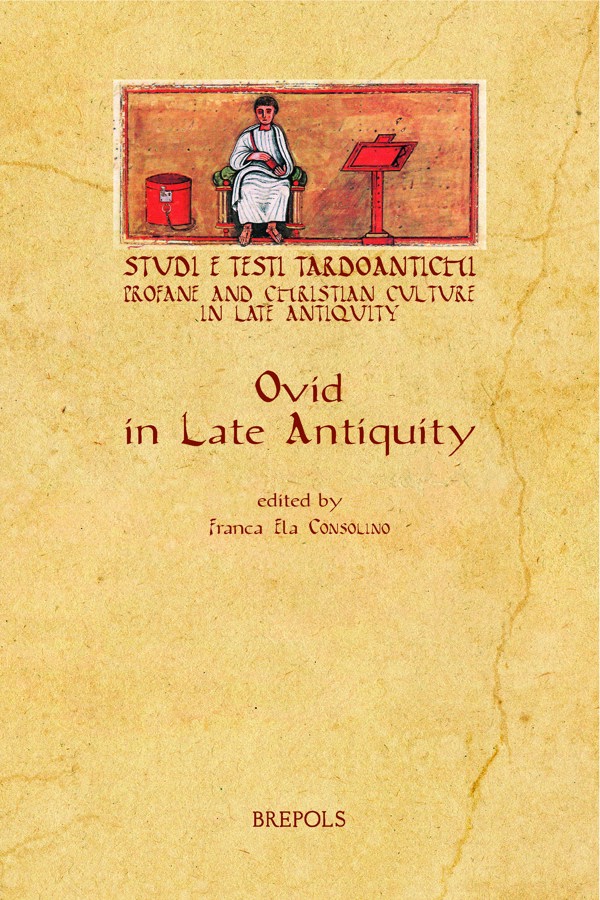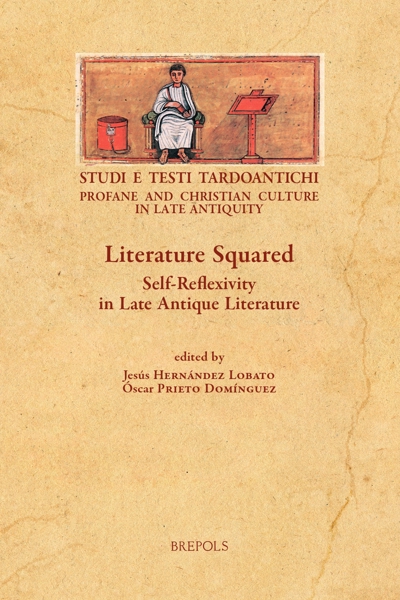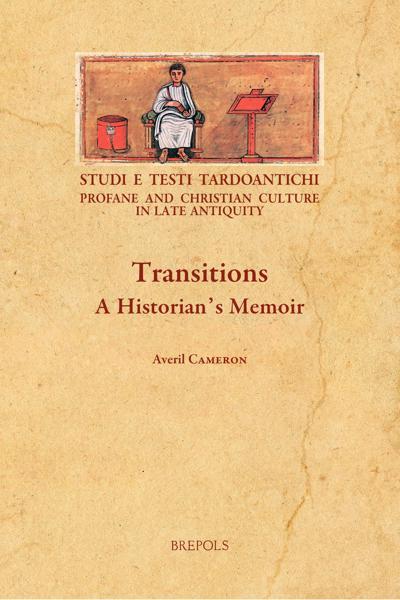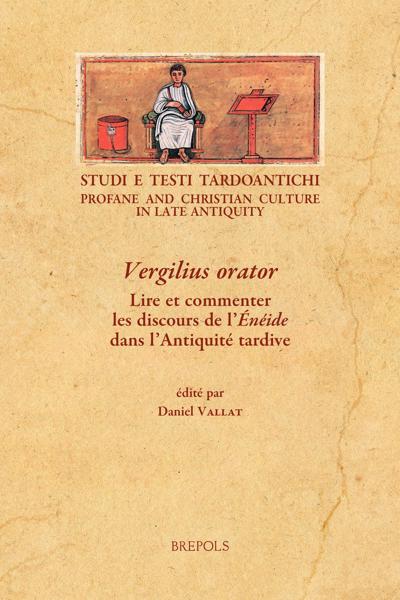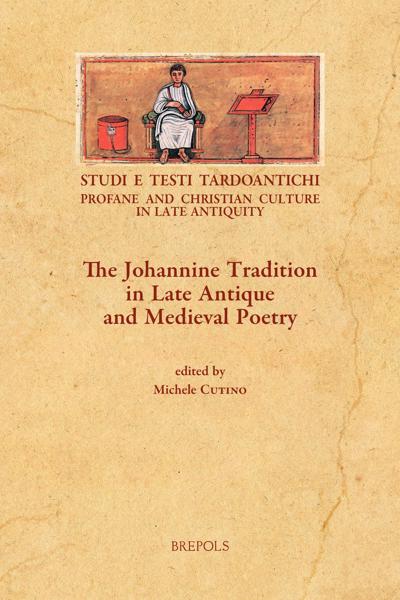
Ovid in Late Antiquity
Franca Ela Consolino (ed)
- Pages: 506 p.
- Size:156 x 234 mm
- Illustrations:14 tables b/w.
- Language(s):English, French, Italian
- Publication Year:2018
- € 125,00 EXCL. VAT RETAIL PRICE
- ISBN: 978-2-503-57808-8
- Paperback
- Available
- € 125,00 EXCL. VAT RETAIL PRICE
- ISBN: 978-2-503-57809-5
- E-book
- Available
A collection of studies on Ovid's multifaceted reception in Latin literature of Late Antiquity
« Une fois de plus, la collection Studi e testi tardoantichi offre un volume d'une grande qualité, qui propose des études littéraires approfondies sur un large choix d'auteurs tardifs. » (Marie-Pierre Bussières, dans Bryn Mawr Classical Review 2019.07.23)
« F.E. Consolino terminait son introduction en espérant que le livre qu’elle éditait serait le point de départ de nouvelles recherches « which will make it possible to shed more light on Ovid’s place in late antiquity » (p. 16). Avec l’exemple de Jordanès on voit combien en effet ce travail est inspirant. Il ne reste plus qu’à souhaiter qu’elle soit entendue ! » (Lucienne Deschamps, dans Revue des Études Anciennes, 121/1, 2019, p. 289)
« L'ouvrage présente une belle unité, car chaque contribution converge pour démontrer l'excellente connaissance d'Ovide qu'eurent les auteurs latins de l'Antiquité tardive. Il présente aussi une grande diversité due au nombre d'auteurs abordés et à leurs différentes personnalités littéraires. Les analyses sont rigoureuses, abordant le problème avec les outils de la littérature comparée, de la statistique, de l'analyse linguistique ou encore de la métrique. Les notes en bas de pages sont nombreuses et précises. La bibliographie est abondante. » (Pascal Tonnaer, dans Les Études Classiques, 89, 2021, p. 432)
“Con tutto cio`, gli spunti di rilettura di molti autori non mancano; soprattutto, pro[1]prio in questo senso il volume assoda un approccio produttivo nei confronti della letteratura di eta`tarda in un ampio arco cronologico, fornendo indicazioni metodologiche di rilievo in diversi cam[1]pi interpretativi. ” (Fabio Gasti, in Athenaeum, 111/1, 2023, p. 306)
Franca Ela Consolino is professor of Latin Language and Literature at the University of L’Aquila. Her research is focused on literary, historical, philological aspects of Latin literary production of Late Antiquity and early Middle Ages, with contributions on both profane and Christian authors, on literary genres, on cultural milieus. She is also the author of several essays dealing with the Christianization of Roman female aristocracy.
The 2000th anniversary of Ovid's death was celebrated in 2017, and Ovid in Late Antiquity aims to mark the occasion. This book embodies a specific approach to Ovid's oeuvre, which is not analysed in and of itself, but rather in its role as a wellspring of inspiration to which later authors would return time and again. Covering the work of a number of authors, who found their way back to Ovid via different methodological pathways, the research distilled in this book is geared towards exploring the ways in which the authors of Late Antiquity interacted with the poet of the Metamorphoses and with his immense, multifaceted output. The choice of this approach arose out of an awareness that the presence and influence of Ovid in late antiquity constitute aspects of the Ovidian legacy that would benefit from a more in-depth exploration. The essays in this collection are intended to help filling this gap.
Introduction (Franca Ela Consolino)
Que dit-on (ou ne dit-on pas) d’Ovide dans l’Antiquité tardive ? (Franz Dolveck)
The Late Roman Empire (IV-V Century)
An vos Nasonis carmina non legitis?: Ovid in Ausonius’ Epigrams (Silvia Mattiacci)
Flowers and Heroines: Some Remarks on Ovid’s Presence in the Cupido cruciatus (Franca Ela Consolino)
Claudian and the Metamorphoses (Cecilia Pavarani)
Echoes of Ovid in Claudian’s Carmina Minora 9 and 28 (Angelo Luceri)
Rivaliser avec Ovide (presque) sans Ovide : à propos de Claudien, Gigantomachie (Carm. min. 53), v. 91-113 (Jean-Louis Charlet)
Ovidian traces in Jerome’s works. Re-evaluation and Beyond (Philip Polcar)
Ovid in the De Sodoma (Amy Oh)
From the Late Roman Empire to the Barbarian Kingdoms
Late Antique Metamorphoses: Ausonius’ Mosella and Fulgentius’ Mythologies as Ovidian Revisitations (Jesús Hernandez Lobato)
The Influence of Ovid’s Metamorphoses in Late Antiquity: Phaethon and the Palace of the Sun (Michael Roberts)
Presence of, References to and Echoes of Ovid in the Works of Rutilius Namatianus, Sidonius Apollinaris and Avitus of Vienne (Luciana Furbetta)
The Barbarian Kingdoms (V-VI Century)
The Satisfactio: Strategies of Argumentation and Literary Models. The Role of Ovid (Stefania Filosini)
Ovide dans l’œuvre profane de Dracontius : une influence paradoxale ? Du microcosme du vers au macrocosme des poèmes (Annick Stoehr-Monjou)
La présence d’Ovide dans l’Appendix Maximiani (carmina Garrod-Schetter) : enjeux théoriques et pratiques d’intertextualité (Benjamin Goldlust)
Caelo terraeque perosus inter utrumque perit: un’eco ovidiana nella descrizione della morte di Giuda in Aratore (Roberto Mori)
The Metrical Forms of the Elegiac Distich in Late Antiquity. Ovid in Venantius Fortunatus (Lucio Ceccarelli)
